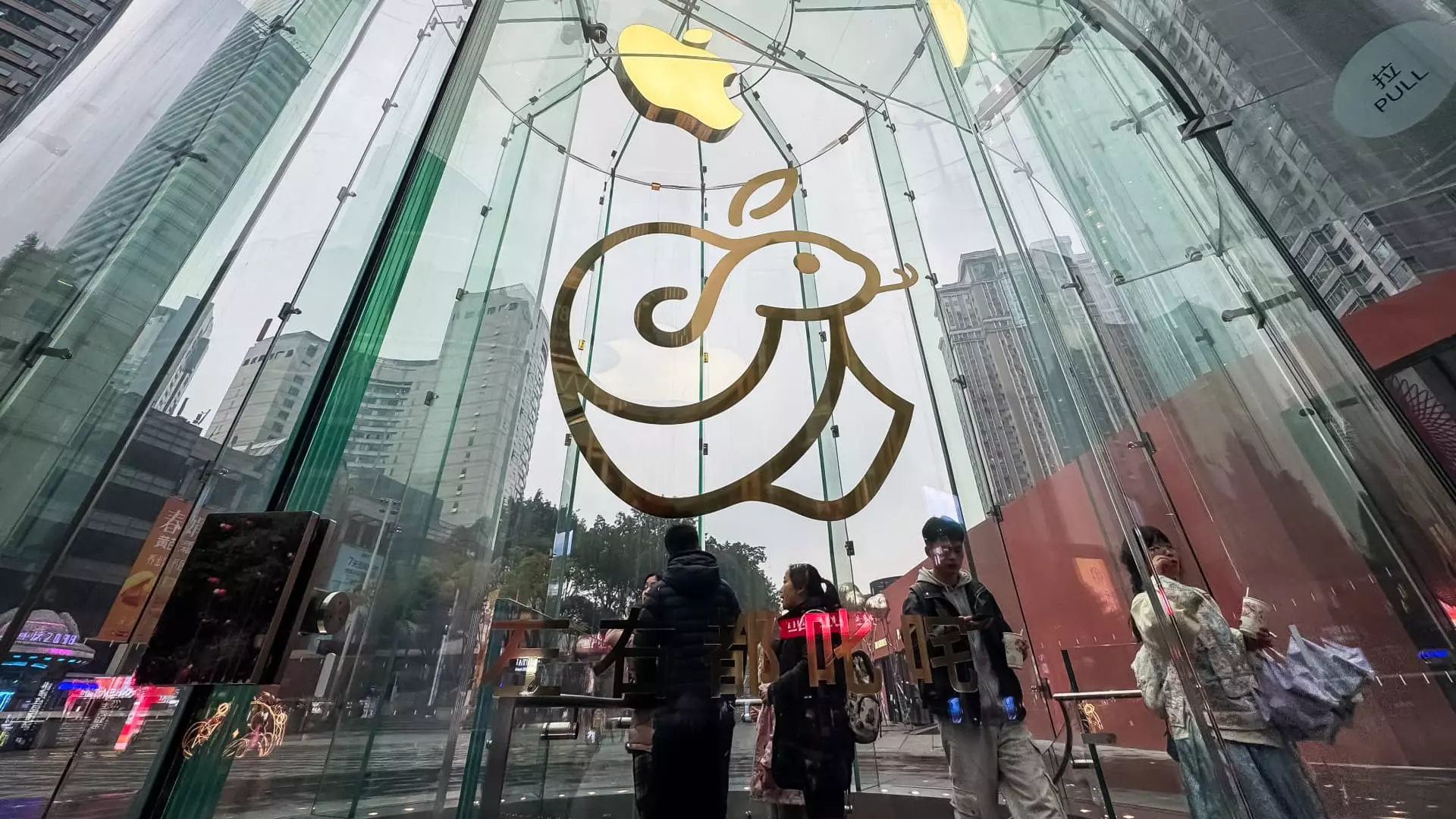On Wednesday, a wave of apprehension swept through the stock market as Apple Inc. experienced a notable decline in share price. Following a report from Bloomberg detailing the potential for an official investigation into the company’s App Store policies by Chinese regulators, Apple’s shares plummeted by 2.66% during premarket trading in London. The uncertainty regarding Apple’s operational framework in a key international market triggered a sell-off, reflecting broader concerns about the company’s adaptability in an evolving regulatory landscape.
The State Administration for Market Regulation (SAMR) of China is reportedly examining Apple’s practices, particularly focusing on the company’s controversial commission structure, which can reach up to 30% on in-app purchases. Additionally, the investigation may scrutinize Apple’s restrictive measures against alternative payment systems and third-party app stores, raising questions about the competitiveness of its ecosystem. While the SAMR has yet to determine whether a formal investigation will be initiated, the implications of such scrutiny could significantly impact Apple’s operations in China, one of its largest markets.
This development unfolds against a backdrop of escalating trade tensions between the United States and China, specifically during a politically charged climate under President Trump’s administration. These geopolitical dynamics further complicate Apple’s standing, as the company must navigate not only market demands but also the intricate web of international relations that can influence its operations. Reports have indicated that this scrutiny of major tech firms transcends Apple, with Google also facing antitrust investigations in China and discussions about Intel potentially undergoing similar examinations.
Apple has consistently defended its App Store policies, framing them as essential for user security and overall product integrity. Nevertheless, the global stage reveals a more complex narrative, as regulatory bodies across the world, particularly in Europe, are tightening their grip on tech giants. The implementation of the Digital Markets Act in the European Union forced Apple to alter its practices, allowing outside companies to provide their app stores and enabling developers to implement alternate payment methods. Such shifts demonstrate a growing trend toward greater regulation, calling into question the sustainability of Apple’s current business model.
If the SAMR proceeds with a formal investigation, the repercussions for Apple could be profound, especially as it struggles to maintain its competitive edge in a market increasingly dominated by local brands such as Huawei. Recent reports suggest a troubling 11% year-on-year decline in Apple sales within Greater China for the last quarter, indicating that the company is not just facing regulatory scrutiny but also a shift in consumer preferences. As such, Apple must adapt its strategies to navigate this dual challenge of regulatory pressures and market competition effectively.
The potential investigation into Apple’s practices by Chinese regulators underscores a critical juncture for the company. As technology firms globally confront increased regulatory scrutiny, Apple’s ability to align its operational strategies with the evolving legal landscape will be imperative. The coming months will be pivotal in determining how the company manages these challenges and whether it can sustain its status as a leader in the technology sector. The stakes are high, not only for Apple but for the future direction of global technology regulation as well.

